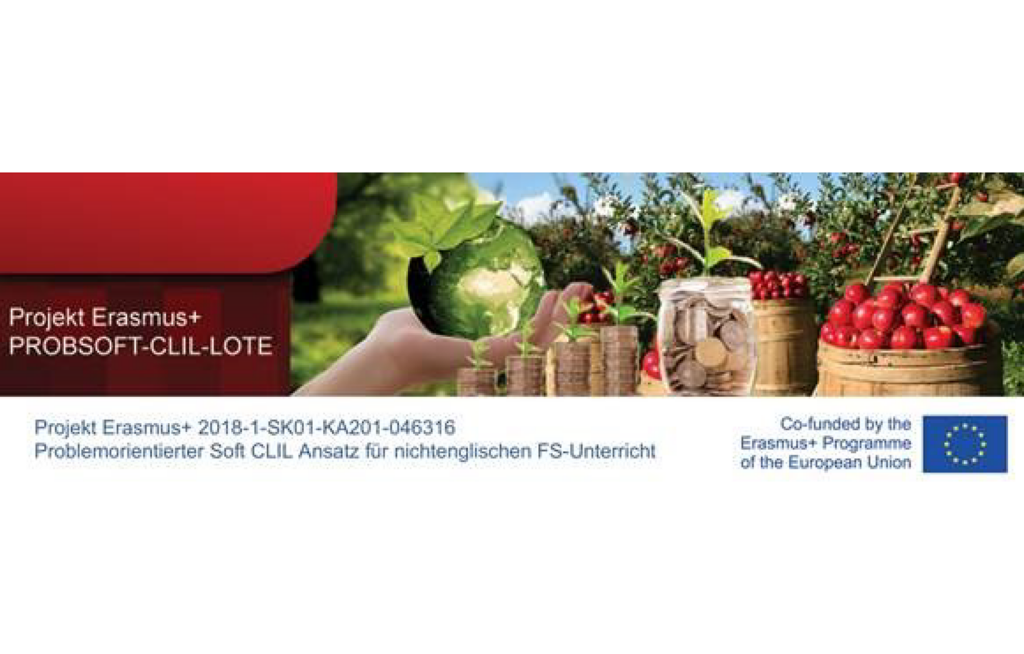
The project ‘Problem-oriented Soft CLIL Approach for LOTE’ includes topical elements which are rarely combined in grammar schools. The concept features effective innovative didactic approaches (Soft CLIL and problem-oriented learning) and cross-curricular topics (Sustainable tourism – hereinafter referred to as ST) and Financial Literacy and Real Mathematics – hereinafter referred to as FLRM). These elements are combined within the project with the objective of teaching grammar school students from four different project countries topic-oriented skills and knowledge, rarely or not treated in grammar school curricula at all, by means of the aforementioned didactic approaches. ST and FLRM represent two fields, which can motivate students towards engaging in specific activities and vocations. Both are considered as highly current topics that can only be taught successfully within the existing education system through appropriate interdisciplinary approaches. Hence, in the frame of the project, we combine them with the respective Soft CLIL and problem-oriented learning approaches. The focus of the project is oriented towards two non-English foreign languages (German, Russian), which a relatively strong position in the fields of economy and culture in the project countries.